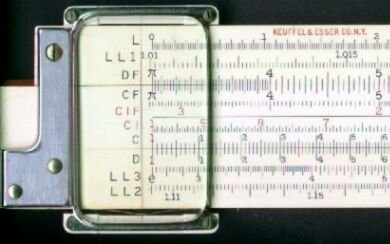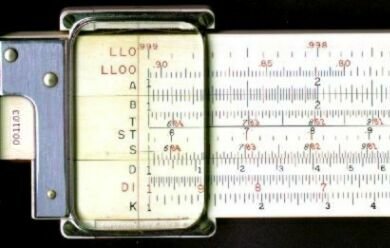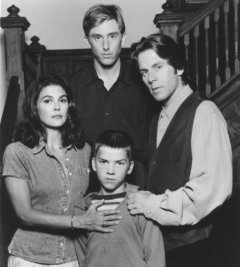You'll have to pardon me. I seldom blog directly about my work, especially about the trials and ordeals of the pastorate; but right now you'll just have to bear with me, because I'm on a tear.
On second thought, I'm going to proceed indirectly, by
metaphors and by
questions. I'm not going to name any names, but I assure you, all of the incidents which follow are entirely true and historical.
Each of the incidents which follows is a metaphor, if you will, for an unexpected situation I encountered when I arrived home late this afternoon from a day and a half's visit to my folks over in Wisconsin.
Metaphor the First: When I was a youngster, and a preacher's kid, I grew up with an unholy terror of parishioners entering the manse without knocking. [
Editor's note: Presbyterians call it a "manse," everyone else calls it a "parsonage."] Yes, a fear of parishioners entering the manse without knocking. I think this derives from the fact that, in my father's earliest years in the pastorate, parishioners were indeed in the habit of walking right into the house, without knocking, without ringing the doorbell. My mother relates that more than once, when she was standing at the sink, she turned around to find a member of the congregation standing there silently behind her in the kitchen. It freaked her out, because she had no idea anyone else was even in the house. And why should she? They had let themselves into the manse silently and without giving any sign of their presence.
Metaphor the Second: By the time I was old enough to remember, this practice had largely ceased, because my folks had talked the members of the congregation into ringing the doorbell or knocking on the door, just like you'd do at a
real house. Nonetheless, I remember one time when I was eight or nine, hiding in terror underneath a bed upstairs, because someone from the congregation had walked in the front door and was walking around downstairs calling out in a loud voice, "Is anybody home?" They finally concluded nobody was home, and left.
Metaphor the Third: When I was in my first pastorate, in a river town in Illinois, straight out of seminary, I was buying some potato chips one day at the gas station, and the gal behind the cash register asked me, "So, do So-and-So's still come walking in the front door of the manse in the evening without knocking?" I said no. She told me that in my predecessor's time, this one couple (who more or less thought they owned the church) would not so infrequently walk right in the front door of the house without knocking, usually right about the time the pastor's wife was trying to get the kids off to bed. Of course you could forget that, with unexpected company suddenly materializing right there in the living room. I repeat, opening the door without even knocking.
Metaphor the Fourth: I know of a Methodist pastor who was in the bathtub once, taking a bath, when he became aware of the sound of somebody in the house. It turned out to be one of his parishioners, who had simply opened the front door and walked right in. "Oh, there you are," she said, as she opened the door to the bathroom. The pastor, sitting there in the bathtub, was mortified. I could name for you the town where this took place, but I'm not going to.
Metaphor the Fifth: I know of another Methodist pastor— oh hell, this was in my home town, at least 45 years ago— he and his family went off somewhere on vacation, and while they were gone, members of the congregation were suddenly seized with the bright idea of cleaning the chimney in the parsonage. So they let a chain down the chimney, and swung and rattled it all around. This had the effect of blowing soot through the duct system, out of the heating grates in various rooms, and all over everything inside the house. When the pastor and his family returned from vacation a week or two later, they were astonished to find all their furniture and belongings covered in soot, and all the drapes in the house pulled down and lying in a sooty heap in the bathtub, where the dismayed parishioners had piled and abandoned them.
Metaphor the Sixth: I know of a former Presbyterian minister who had served in a town not too far from one of my interim pastorates a number of years ago. Some of his parishioners were of the opinion that the housekeeping in the manse was none too tidy. So while this pastor and his wife were gone on vacation, said parishioners let themselves in and undertook a white-glove inspection tour of the house. This was the first domino which led in short order to the unraveling of his pastorate there, immediately after which his wife left him and his mother died.
Metaphor the Seventh: One of my classmates at seminary once went to interview for a possible pastoral position. While the search committee was showing him around the manse, he noticed that two of the rooms had in them low tables and small chairs. There were crayons and coloring books lying on the tables. "What's that?" he asked. "Oh," said the members of the search committee, "we use those two rooms here in the house as Sunday school classrooms." Need I add, that was the end of my classmate's interest in that particular congregation?
Metaphor the Eighth: There was a young single pastor at a Presbyterian church up in northern Wisconsin. The people of the congregation were in the habit of walking in the front door of the manse without warning. By now you know the drill, right? The people just walked right in, without knocking, and without ringing the doorbell. The pastor asked people to please ring or knock before entering; they ignored his request, and kept walking right in the front door, into his living room, without warning. The pastor took to locking the front door; but many parishioners had keys to the manse, and they would simply unlock the door and walk right in. Without ringing the doorbell. Without knocking. Well, by and by this pastor got married. One evening he and his new bride were sitting there in the living room. They got a bit amorous. It went from one thing to the next. All of a sudden, a parishioner unlocked the front door and walked right in without warning... to find the pastor and his wife having sex right there in the living room.
True story, I kid you not. At least it has a happy ending: that was the
last time anyone in that congregation entered the manse without knocking on the door first.
Anyhow, those are the
metaphors. Now here are the
questions:
How would you feel if you were away for a day and a half, visiting relatives, and returned home to find people marching in and out of your front door with buckets and mops? What would you think to find your chairs, tables, cabinets, etc. moved out of place to make room for a work crew in your house? What would you make of it if all this took place
completely unexpectedly, without so much as a hint of advance notice to you that it was going to take place?
(The work crew themselves not parishioners, but engaged by the congregation.)
How would you feel if you had gone away for a day and a half leaving your bed unmade, plates and glasses from your latest meal sitting on the kitchen table unwashed, dirty laundry lying in a heap on the floor, toilet bowl badly in need of cleaning, personal papers
including your latest tax returns lying right out in the open on a table... with no idea that while you were gone all this and more would be laid open to the eyes of people who were unexpectedly and with no warning going to be entering your house?
I repeat, I just raise these as idle
questions. Questions, nothing more. Questions, with a backdrop of assorted
metaphors.
Now, if you'll excuse me, I've got to go and rearrange the furniture in my bedroom, to put my cedar chest and my rocking chair and my TV cabinet back where they were originally sitting before I left on a day and a half's trip yesterday noon. The rest of the displaced furniture in my house can wait until tomorrow morning.
Yeah, try to rearrange my bedroom back to the way it was 36 hours ago. Then go see if I can work up enough appetite to force down a few bites for supper. Because ever since I pulled into my driveway late this afternoon, I've had no appetite at all. I just can't get any food down.
Labels: rants















